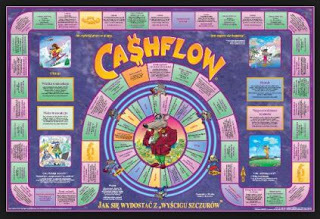Should You Start a Writing Business (Part 2)
Quick Rachel note before we get started! For those of you asking about the audio edition of NO GOOD DRAGON GOES UNPUNISHED...

That's right, the folks at Audible have come through, and the audio edition of my third Heartstrikers novel will be out on September 13, 2016!
But that's not all! Not only will you have less than a month to wait between the ebook release on August 5 and the audio edition, but the audiobook is available for preorder right now!!

That's right, in a move usually reserved for big publishers, Audible has put my book up for preorder. You can reserve your copy now at Amazon or directly from Audible.com, whichever suits your fancy!
Also, I've talked with Vikas on the phone (as I always do), and you guys, he is going to be AMAZING in this book. He's even videoing some of his recording for those of you who are interested in seeing how audio books are made. I'll be posting those links as soon as they're up, so be sure to keep an eye here on the blog, Twitter, or Facebook to catch that when it comes up.
Remember, there's only a few days left before the ebook of NO GOOD DRAGON GOES UNPUNISHED comes out in ebook on August 5! If you haven't already, you can preorder your copy now or reserve it to read on Kindle Unlimited. Bob would want you to be prepared!
And with that bit of happy news out of the way, I'll pass the keyboard to Travis and his amazing, jam packed second half of Should You Start a Writing Business?
Take it away, Trav!
( > ^_^ ) >
Hi Folks,
Last week I talked broadly about the benefits of starting a business. This week, I'm going to get into specifics about the types of businesses and what they can do for you, the author. Specifically. There's a lot to talk about here, so let's get to-
Should You Start a Writing Business (Part 2)But first, the disclaimers!
Disclaimer #1 - Because we live in America, this is intensely USA oriented information. I'm sorry if you're looking for business advice in another country.
Disclaimer #2 - I am not your legal counsel nor your qualified accountant. We do not have a client relationship. I'm telling you what I've found and heard so that you can go look into more and proper details. Don't tell the IRS "but Travis said so!" because they won't care. If you want to do anything I've talked about here, go sort it out with an actual accountant or lawyer or both.
The 6 Main Business Problems that Authors Face (that having a company can help solve...)
2. Increased tax exposure. Having to bear the full burden of the self-employment tax adds another 7.3% on earnings for authors to pay. By default, all author earnings just pile in with all other personal income as well, pushing up tax bracket exposure.
3. Personal liability. By default, authors sued for something related to their books or publishing side have their personal assets on the line. There's no protection or division between business and personal. Same goes for business related debts.
4. Lack of business structure. You're in business by yourself implicitly, but other than kickstarters and trad publishing contracts, there's no other good options for authors seeking investors or business partners. (Note I said good, there are always ways to get investors)
5. Lack of legitimacy. This is for self-pubbers really. It's hard to get legitimacy or recognition as an indie. The sea of unprofessional people in the indie community means that you have to strive and strive hard to earn the "reputable business person" status. Honestly, it's a career long struggle for most, even the successful ones.
6. Messy accounting. Do you use your personal checking and savings accounts to handle all your writing income and expenses? Don't feel bad! Most folks do it that way. We did it that way for years. It works, but it creates work for you. Either you are tracking all writing expenses and incomes manually OR you are sorting it all out at tax time. Both options are bad IMO. It also makes it pretty hard to track and properly claim all your business-related tax deductions. Missed opportunities may abound.

Time, options, costs, taxes... So those are the business problems, as I see them, that authors face and which forming a company might solve. There are plenty of other issues such as writing a good book, and marketing, but we're about the biz today.
and how do you solve them? The depends on,
The Type of Businesses You Can Form (at least in the USA)Not all business types are equal! Not even close. That said, there's a lot of exciting possibilities here that I want to share with you today. First off, let's talk about the easy ones that offer the most bang for your buck. This is low-hanging fruit territory.

BTW - there are more types out there than I cover here. I'm focusing on the 'main' ones as things like trusts, joint ventures, and non-profits aren't really on point for most authors. Anyway,
Sole Proprietorship and PartnershipsThe sole prop. If you have Schedule C/Form 1040 income, then you are implicitly a sole prop already. That doesn't do much for you though.
Forming am official sole prop company (or a partnership) is really easy. You'll have to look up your state's laws, but getting going can be as simple as a one-page form and a one-time fee. Most, I think, are formed using your name btw. If you don't want to be [Your Name] Co. then you need to register something called "A partnership is similarly easy. It's basically the same as a sole prop except that there's more than one business owner. You're not solo. Also general partnerships share profits and liabilities between owners. There's not a lot of fanciness allowed.
Both types are great in that they let you quickly and cheaply formalize your company. Once you've done that, you can setup business accounts, accounting, branding (logos, cards, etc), and so on.
So these lightweight business types can help you solve most of the problems I mentioned in the beginning of the post. If you don't want to mess with more complicated and costly business hurdles, but you do want to get most of the benefits of having a company, then these are good options.
What a sole prop or partnership can't doLiability protection = none. Sole proprietors and partners are all fully personally liable for everything pertaining to the business. So sorry, these don't protect you. That's part of why they are easy to setup and operate though.Limited business models. You can run your sole prop however you (legally) want to. Partnerships are also pretty willy nilly as to what partners can do. If you want more legally binding and complex structures of business administration (like rules governing who owns what and who can manage what) then you'll find the general partnership lacking. As for investors, well you don't really have any new tools other than being a business. That's something, but it's not, say, stocks.Limited tax relief. By having business accounts, fixing the messy accounting problem, you'll be much more able to deduct all your business expenses and make sure you are fully leveraging that powerful option. If you aren't a formal company, I'd bet money you aren't doing this right now. I don't blame you! It's hard to do when the business and the personal are mixed. So hard that it's almost not worth the time to do. For more on sole proprietorship, partnerships, or limited partnerships, please take a look at,
Entrepreneur.com - The Sole Proprietorship
SBA.gov - Sole Prop info
IRS - forms and such for Sole Prop
NOLO.com - Resources for Partnerships and Partnership FAQ
SBA.gov - Partnerships
IRS - Partnerships
LLCs, S-Corps, and C-CorpsThese are much fancier setups but they all offer more powerful features. To start with, all of these business types can achieve all the benefits that a sole prop or partnership can and more.
Feature #1 - Liability ProtectionThe big item in this arena. The Limited Liability Company, S-Corp, and C-Corp all provide separation of business and personal assets. Owners of these types of businesses are not personally liable for the company's losses. So if the company has debt, it's the company's not yours (unless you co-signed personally!). If the company is sued and loses, the losses are contained at the company level. Bonus, if the liability pertains to a given owner, the damage is contained to that owner usually.
This protection comes at a cost though. Setup is more complicated and you'll likely need professional help to do it. Maintenance is higher as well. You have to really endeavor to keep your personal our of your business. If you comingle funds, or fail to properly keep that boundary enforced, then a judge might pierce the veil of protection and you can become personally liable anyway.
In practice, Rachel and I haven't found this too onerous for our LLC. In addition to separate accounts, I also keep all the company records in their own filing cabinet, use company office supplies only for company mailing, and so on. Rachel's writing room is a home office and it is strictly so. No other activities happen there but business. We have to hold the occasional company meeting as well, which is fun I think.

Honestly, it's all stuff we should have been doing all along anyway. Like I said last week, acting like a business is often good for you. A necessary step of maturation for all of us IMO.
Feature #2 - Better Business Structures

Let's take the LLC for an example here. The rules of governing and running an LLC are formally set down at its creation in something called an operating agreement . This legally establishes things like how to add owners, how to sell ownership, who can manage what, and how to change the operating agreement in the future.
Operating agreements are powerful, but more so they are priceless. People are drama haha. If you have more than one owner participating in a company, there's gonna be drama at some point. The formal operating agreement helps keep drama from ruining the company. Well, if you set it up right so that the bases are protected. Nothing is truly drama proof ^_^;;
Flexible ownership setups are part of this. Unlike a general partnership, these more sophisticated types of companies can have owners who manage daily operations and owners who don't. They can also have uneven ownership. Someone might own 10%, another person own 40%, and so on. This is handy for bringing in those investor/mentor type people who can own a small part, advise the authors, and not actually run anything themselves.
S-Corps and C-Corps have actual stocks and they have shareholders. This is pretty cool since you can sell the stocks. It's one of the easiest ways to bring on investors into a company. S-Corps only have 1 type of stock though, while C-Corps can make up many kinds.
My take here is that these structures are great for people who want to go into business with others. Multi-author team ups are powerful but this isn't limited to multiple authors necessarily. Rachel's the only author in Aaron/Bach, LLC. The other owner (me) is a business person, not an author.
This isn't for employees. All companies can have employees. These operating agreements and multiple ownership setups aren't for an employee relationship. If you have say, a paid assistant, and want to keep it that way, then these aren't going to do anything special as you'd be the sole owner of the company still.
Feature #3 - Better Tax OptionsLLCs check out on this one I'm afraid. If you are an LLC owner, then business profits are right onto your Schedule C/Form 1040 like always.
S-Corps and C-Corps though, they are different, or they can be. These are where it gets really exciting IMO.
 this might be our favorite biz related gif everFor example, owners who don't work for the business get paid via distribution and that money is treated as capital gains. There's no SE tax and capital gains uses different, often more favorable, rates than personal income.
this might be our favorite biz related gif everFor example, owners who don't work for the business get paid via distribution and that money is treated as capital gains. There's no SE tax and capital gains uses different, often more favorable, rates than personal income.
More importantly, these companies can pay salaries to owners who work for the business. This is awesomely powerful tax wise. Salaries pay the normal self-employment taxes, but all other profit distributions comes in as capital gains. That's a considerable savings, easily thousands to tens of thousands of dollars per year depending on how successful you are.
It's tricky to do though. What is considered to be a proper owner salary is not straight forward. You cannot, for example, pay yourself $1/year. There's a lot of hurdles and narrows to navigate to pull this off. So much so that I can't get into it here. Suffice it to say, you need a professional for this. Someone who can help you come up with a solid strategy to make this happen for you and the kind of company you want to run.
Now, even if you can't manage to save on the SE taxes, there's also the matter of withholding. Being able to run payroll via an accountant is handy because you can pre-calc and pay your tax withholdings on payroll.

In terms of cash flow, what you pay might not change but when you pay it gets more flexible. You can run payroll bi-monthly, monthly, quarterly, or annually. (Accounting fees will vary). We still do it annually here, but I want to move to quarterly in 2017.
Having payroll withholding also makes it easier to (A) estimate taxes and (B) not spend them on accident. For example, our accountant determines the withholding and then I write his office a check, which is, I believe, placed in a special tax escrow account. I can't get to it after that! It's safe. When tax time hits, it'll play its part.
 savvy?C-Corps bear a special mention in that they have double taxation. See a C-Corp is basically a person, which sucks for our political system here in the USA I might point out, but tax wise the C-Corp's earnings are its own and taxed as such. If you are paid by a C-Corp, then the money is either salary or dividends. It's easier to work for a C-Corp and get that lovely salary-dividends split going, but the double taxation can ruin it.
savvy?C-Corps bear a special mention in that they have double taxation. See a C-Corp is basically a person, which sucks for our political system here in the USA I might point out, but tax wise the C-Corp's earnings are its own and taxed as such. If you are paid by a C-Corp, then the money is either salary or dividends. It's easier to work for a C-Corp and get that lovely salary-dividends split going, but the double taxation can ruin it.
If this interests you, you'll need to do the research and the math to see if there's any actual savings to be had. C-Corps are a lot of work to get and operate so look carefully before leaping into this loch.
Feature #4 - The MiscSole proprietorships and partnerships have a perpetuation issue. Mainly, it's hard / almost impossible for them to survive drastic changes in ownership. One advantage of LLCs, S-Corps, and C-Corps is that they can change ownership. Since we're talking about a business that might own your writing, I can see how this option would be off the table for most authors.
We certainly have no plans to sell off all of the lovingly made intellectual property that Rachel has crafted. That said, who knows what 50 years in the future holds, where we will be, what our attitude will be, and what we might need. Exit strategies are like parachutes in this way.

Lastly, very lastly IMO, there's the legal bundling that comes along with these. The separation of personal and business helps with keeping business agreements and such strictly attached to the business. There's many benefits here, like liability protection, but the one I think is coolest is the ability to change owners without disrupting and reassigning all your company's contracts.
More reading
If you are interested in an LLC, S-Corp, C-Corp or LLC with S-Corp election, then here's some links for more reading.
SBA.gov - LLC
SBA.gov - S-Corp
SBA.gov - C-Corp
Incorporate.com - Business Entity Types
Smallbusiness.Findlaw.com - Type of Business Structures
I'm gonna plug LLCs for Dummies again because this is territory where you need to read expertly gathered and arranged advice.
LLC with S-Corp election? What's that?That's what Aaron/Bach, LLC is and I'd be remiss if I didn't talk about it. Fundamentally, the LLC with S-Corp election is an LLC. There's an operating agreement, member-owners, and so on. It also has stocks, perpetuity, annual meetings, and can pay owners salaries. It's more work than a straight LLC but a bit less than a full corporation.
We chose this for two reasons. One of those being because the accountant recommended it for us. I would not have known about this setup if not for our accountant. The other main reason was salaries. I suppose there's also a distant third, fourth, etc reasons being the stocks and perpetuity.
A Note About Contracts
I've covered all the bases I wanted to today, but there is one bit of advice that needs to be stuck in here. When moving from an implicit sole prop to actual company status, you will have to look into formally reassigning rights, ownership, and contracts pertaining to your books.
For example, Rachel had a contract with Audible for Nice Dragons Finish Last. When we formed Aaron/Bach, LLC we had to talk with Audible to amend that contract to point to the company instead of her. Fortunately, Audible was super nice about this and made it very easy for us to do so. They just sent over an amendment for us to sign.
No one ever really explained to me how we were to move over IP and legal agreements when we formed a business. I'll be honest, we're still figuring some of this out. You've got at least a heads up here though, which is more than I had. Good luck!
All in All...Forming a writing business won't make your books sell better, nor will it make you a better writer, What it will do for you is to make you operate more cleanly, efficiently, and safely. It will open up more business side options for you and hopefully some doors as well.
If you're writing your first book, then this isn't stuff you need to worry too much about. It's good to know about for the future though as you'll want to keep an eye towards this eventuality. Those of you who are getting some momentum and real earnings down, now's a good time to start examining. The more complex your writing career becomes, the more work and missed opportunities there will be.
Lastly, if you are considering a serious, long-term author team up for your career (like the SPP guys) then you should look at a business from the get go. It'll make for a cleaner entry and exit from the arrangement as well as better operations over all.
Thanks for reading today. If there's any topics you'd like me or Rachel to talk about here on the blog, please feel free to leave them below. We're always working hard to find information that is useful to you. You can also just hit me up on Twitter, that works too! (@TravBach) Rachel's social media links are here as well if you want to get live updates! (Twitter/Facebook/Tumblr/Google+)
Thanks again for reading, and I'll see you all next week!
Sincerely,
-Travis

That's right, the folks at Audible have come through, and the audio edition of my third Heartstrikers novel will be out on September 13, 2016!
But that's not all! Not only will you have less than a month to wait between the ebook release on August 5 and the audio edition, but the audiobook is available for preorder right now!!

That's right, in a move usually reserved for big publishers, Audible has put my book up for preorder. You can reserve your copy now at Amazon or directly from Audible.com, whichever suits your fancy!
Also, I've talked with Vikas on the phone (as I always do), and you guys, he is going to be AMAZING in this book. He's even videoing some of his recording for those of you who are interested in seeing how audio books are made. I'll be posting those links as soon as they're up, so be sure to keep an eye here on the blog, Twitter, or Facebook to catch that when it comes up.
Remember, there's only a few days left before the ebook of NO GOOD DRAGON GOES UNPUNISHED comes out in ebook on August 5! If you haven't already, you can preorder your copy now or reserve it to read on Kindle Unlimited. Bob would want you to be prepared!
And with that bit of happy news out of the way, I'll pass the keyboard to Travis and his amazing, jam packed second half of Should You Start a Writing Business?
Take it away, Trav!
( > ^_^ ) >
Hi Folks,
Last week I talked broadly about the benefits of starting a business. This week, I'm going to get into specifics about the types of businesses and what they can do for you, the author. Specifically. There's a lot to talk about here, so let's get to-
Should You Start a Writing Business (Part 2)But first, the disclaimers!
Disclaimer #1 - Because we live in America, this is intensely USA oriented information. I'm sorry if you're looking for business advice in another country.
Disclaimer #2 - I am not your legal counsel nor your qualified accountant. We do not have a client relationship. I'm telling you what I've found and heard so that you can go look into more and proper details. Don't tell the IRS "but Travis said so!" because they won't care. If you want to do anything I've talked about here, go sort it out with an actual accountant or lawyer or both.
The 6 Main Business Problems that Authors Face (that having a company can help solve...)
2. Increased tax exposure. Having to bear the full burden of the self-employment tax adds another 7.3% on earnings for authors to pay. By default, all author earnings just pile in with all other personal income as well, pushing up tax bracket exposure.
3. Personal liability. By default, authors sued for something related to their books or publishing side have their personal assets on the line. There's no protection or division between business and personal. Same goes for business related debts.
4. Lack of business structure. You're in business by yourself implicitly, but other than kickstarters and trad publishing contracts, there's no other good options for authors seeking investors or business partners. (Note I said good, there are always ways to get investors)
5. Lack of legitimacy. This is for self-pubbers really. It's hard to get legitimacy or recognition as an indie. The sea of unprofessional people in the indie community means that you have to strive and strive hard to earn the "reputable business person" status. Honestly, it's a career long struggle for most, even the successful ones.
6. Messy accounting. Do you use your personal checking and savings accounts to handle all your writing income and expenses? Don't feel bad! Most folks do it that way. We did it that way for years. It works, but it creates work for you. Either you are tracking all writing expenses and incomes manually OR you are sorting it all out at tax time. Both options are bad IMO. It also makes it pretty hard to track and properly claim all your business-related tax deductions. Missed opportunities may abound.

Time, options, costs, taxes... So those are the business problems, as I see them, that authors face and which forming a company might solve. There are plenty of other issues such as writing a good book, and marketing, but we're about the biz today.
and how do you solve them? The depends on,
The Type of Businesses You Can Form (at least in the USA)Not all business types are equal! Not even close. That said, there's a lot of exciting possibilities here that I want to share with you today. First off, let's talk about the easy ones that offer the most bang for your buck. This is low-hanging fruit territory.

BTW - there are more types out there than I cover here. I'm focusing on the 'main' ones as things like trusts, joint ventures, and non-profits aren't really on point for most authors. Anyway,
Sole Proprietorship and PartnershipsThe sole prop. If you have Schedule C/Form 1040 income, then you are implicitly a sole prop already. That doesn't do much for you though.
Forming am official sole prop company (or a partnership) is really easy. You'll have to look up your state's laws, but getting going can be as simple as a one-page form and a one-time fee. Most, I think, are formed using your name btw. If you don't want to be [Your Name] Co. then you need to register something called "A partnership is similarly easy. It's basically the same as a sole prop except that there's more than one business owner. You're not solo. Also general partnerships share profits and liabilities between owners. There's not a lot of fanciness allowed.
Both types are great in that they let you quickly and cheaply formalize your company. Once you've done that, you can setup business accounts, accounting, branding (logos, cards, etc), and so on.
So these lightweight business types can help you solve most of the problems I mentioned in the beginning of the post. If you don't want to mess with more complicated and costly business hurdles, but you do want to get most of the benefits of having a company, then these are good options.
What a sole prop or partnership can't doLiability protection = none. Sole proprietors and partners are all fully personally liable for everything pertaining to the business. So sorry, these don't protect you. That's part of why they are easy to setup and operate though.Limited business models. You can run your sole prop however you (legally) want to. Partnerships are also pretty willy nilly as to what partners can do. If you want more legally binding and complex structures of business administration (like rules governing who owns what and who can manage what) then you'll find the general partnership lacking. As for investors, well you don't really have any new tools other than being a business. That's something, but it's not, say, stocks.Limited tax relief. By having business accounts, fixing the messy accounting problem, you'll be much more able to deduct all your business expenses and make sure you are fully leveraging that powerful option. If you aren't a formal company, I'd bet money you aren't doing this right now. I don't blame you! It's hard to do when the business and the personal are mixed. So hard that it's almost not worth the time to do. For more on sole proprietorship, partnerships, or limited partnerships, please take a look at,
Entrepreneur.com - The Sole Proprietorship
SBA.gov - Sole Prop info
IRS - forms and such for Sole Prop
NOLO.com - Resources for Partnerships and Partnership FAQ
SBA.gov - Partnerships
IRS - Partnerships
LLCs, S-Corps, and C-CorpsThese are much fancier setups but they all offer more powerful features. To start with, all of these business types can achieve all the benefits that a sole prop or partnership can and more.
Feature #1 - Liability ProtectionThe big item in this arena. The Limited Liability Company, S-Corp, and C-Corp all provide separation of business and personal assets. Owners of these types of businesses are not personally liable for the company's losses. So if the company has debt, it's the company's not yours (unless you co-signed personally!). If the company is sued and loses, the losses are contained at the company level. Bonus, if the liability pertains to a given owner, the damage is contained to that owner usually.
This protection comes at a cost though. Setup is more complicated and you'll likely need professional help to do it. Maintenance is higher as well. You have to really endeavor to keep your personal our of your business. If you comingle funds, or fail to properly keep that boundary enforced, then a judge might pierce the veil of protection and you can become personally liable anyway.
In practice, Rachel and I haven't found this too onerous for our LLC. In addition to separate accounts, I also keep all the company records in their own filing cabinet, use company office supplies only for company mailing, and so on. Rachel's writing room is a home office and it is strictly so. No other activities happen there but business. We have to hold the occasional company meeting as well, which is fun I think.

Honestly, it's all stuff we should have been doing all along anyway. Like I said last week, acting like a business is often good for you. A necessary step of maturation for all of us IMO.
Feature #2 - Better Business Structures

Let's take the LLC for an example here. The rules of governing and running an LLC are formally set down at its creation in something called an operating agreement . This legally establishes things like how to add owners, how to sell ownership, who can manage what, and how to change the operating agreement in the future.
Operating agreements are powerful, but more so they are priceless. People are drama haha. If you have more than one owner participating in a company, there's gonna be drama at some point. The formal operating agreement helps keep drama from ruining the company. Well, if you set it up right so that the bases are protected. Nothing is truly drama proof ^_^;;
Flexible ownership setups are part of this. Unlike a general partnership, these more sophisticated types of companies can have owners who manage daily operations and owners who don't. They can also have uneven ownership. Someone might own 10%, another person own 40%, and so on. This is handy for bringing in those investor/mentor type people who can own a small part, advise the authors, and not actually run anything themselves.
S-Corps and C-Corps have actual stocks and they have shareholders. This is pretty cool since you can sell the stocks. It's one of the easiest ways to bring on investors into a company. S-Corps only have 1 type of stock though, while C-Corps can make up many kinds.
My take here is that these structures are great for people who want to go into business with others. Multi-author team ups are powerful but this isn't limited to multiple authors necessarily. Rachel's the only author in Aaron/Bach, LLC. The other owner (me) is a business person, not an author.
This isn't for employees. All companies can have employees. These operating agreements and multiple ownership setups aren't for an employee relationship. If you have say, a paid assistant, and want to keep it that way, then these aren't going to do anything special as you'd be the sole owner of the company still.
Feature #3 - Better Tax OptionsLLCs check out on this one I'm afraid. If you are an LLC owner, then business profits are right onto your Schedule C/Form 1040 like always.
S-Corps and C-Corps though, they are different, or they can be. These are where it gets really exciting IMO.
 this might be our favorite biz related gif everFor example, owners who don't work for the business get paid via distribution and that money is treated as capital gains. There's no SE tax and capital gains uses different, often more favorable, rates than personal income.
this might be our favorite biz related gif everFor example, owners who don't work for the business get paid via distribution and that money is treated as capital gains. There's no SE tax and capital gains uses different, often more favorable, rates than personal income.More importantly, these companies can pay salaries to owners who work for the business. This is awesomely powerful tax wise. Salaries pay the normal self-employment taxes, but all other profit distributions comes in as capital gains. That's a considerable savings, easily thousands to tens of thousands of dollars per year depending on how successful you are.
It's tricky to do though. What is considered to be a proper owner salary is not straight forward. You cannot, for example, pay yourself $1/year. There's a lot of hurdles and narrows to navigate to pull this off. So much so that I can't get into it here. Suffice it to say, you need a professional for this. Someone who can help you come up with a solid strategy to make this happen for you and the kind of company you want to run.
Now, even if you can't manage to save on the SE taxes, there's also the matter of withholding. Being able to run payroll via an accountant is handy because you can pre-calc and pay your tax withholdings on payroll.

In terms of cash flow, what you pay might not change but when you pay it gets more flexible. You can run payroll bi-monthly, monthly, quarterly, or annually. (Accounting fees will vary). We still do it annually here, but I want to move to quarterly in 2017.
Having payroll withholding also makes it easier to (A) estimate taxes and (B) not spend them on accident. For example, our accountant determines the withholding and then I write his office a check, which is, I believe, placed in a special tax escrow account. I can't get to it after that! It's safe. When tax time hits, it'll play its part.
Salary is also pretty nice to have if the irregular nature of author income causes you trouble. Being able to pile up all the money into the business and then pay yourself a fixed monthly check again might help with money discipline issues.Not to say that you, dear savvy reader, have such issues, but there are those out there that might I'm sure. ^_^ The feast-and-famine lifestyle isn't for everyone.
 savvy?C-Corps bear a special mention in that they have double taxation. See a C-Corp is basically a person, which sucks for our political system here in the USA I might point out, but tax wise the C-Corp's earnings are its own and taxed as such. If you are paid by a C-Corp, then the money is either salary or dividends. It's easier to work for a C-Corp and get that lovely salary-dividends split going, but the double taxation can ruin it.
savvy?C-Corps bear a special mention in that they have double taxation. See a C-Corp is basically a person, which sucks for our political system here in the USA I might point out, but tax wise the C-Corp's earnings are its own and taxed as such. If you are paid by a C-Corp, then the money is either salary or dividends. It's easier to work for a C-Corp and get that lovely salary-dividends split going, but the double taxation can ruin it.If this interests you, you'll need to do the research and the math to see if there's any actual savings to be had. C-Corps are a lot of work to get and operate so look carefully before leaping into this loch.
Feature #4 - The MiscSole proprietorships and partnerships have a perpetuation issue. Mainly, it's hard / almost impossible for them to survive drastic changes in ownership. One advantage of LLCs, S-Corps, and C-Corps is that they can change ownership. Since we're talking about a business that might own your writing, I can see how this option would be off the table for most authors.
We certainly have no plans to sell off all of the lovingly made intellectual property that Rachel has crafted. That said, who knows what 50 years in the future holds, where we will be, what our attitude will be, and what we might need. Exit strategies are like parachutes in this way.

Lastly, very lastly IMO, there's the legal bundling that comes along with these. The separation of personal and business helps with keeping business agreements and such strictly attached to the business. There's many benefits here, like liability protection, but the one I think is coolest is the ability to change owners without disrupting and reassigning all your company's contracts.
More reading
If you are interested in an LLC, S-Corp, C-Corp or LLC with S-Corp election, then here's some links for more reading.
SBA.gov - LLC
SBA.gov - S-Corp
SBA.gov - C-Corp
Incorporate.com - Business Entity Types
Smallbusiness.Findlaw.com - Type of Business Structures
I'm gonna plug LLCs for Dummies again because this is territory where you need to read expertly gathered and arranged advice.
LLC with S-Corp election? What's that?That's what Aaron/Bach, LLC is and I'd be remiss if I didn't talk about it. Fundamentally, the LLC with S-Corp election is an LLC. There's an operating agreement, member-owners, and so on. It also has stocks, perpetuity, annual meetings, and can pay owners salaries. It's more work than a straight LLC but a bit less than a full corporation.
We chose this for two reasons. One of those being because the accountant recommended it for us. I would not have known about this setup if not for our accountant. The other main reason was salaries. I suppose there's also a distant third, fourth, etc reasons being the stocks and perpetuity.
A Note About Contracts

I've covered all the bases I wanted to today, but there is one bit of advice that needs to be stuck in here. When moving from an implicit sole prop to actual company status, you will have to look into formally reassigning rights, ownership, and contracts pertaining to your books.
For example, Rachel had a contract with Audible for Nice Dragons Finish Last. When we formed Aaron/Bach, LLC we had to talk with Audible to amend that contract to point to the company instead of her. Fortunately, Audible was super nice about this and made it very easy for us to do so. They just sent over an amendment for us to sign.
No one ever really explained to me how we were to move over IP and legal agreements when we formed a business. I'll be honest, we're still figuring some of this out. You've got at least a heads up here though, which is more than I had. Good luck!
All in All...Forming a writing business won't make your books sell better, nor will it make you a better writer, What it will do for you is to make you operate more cleanly, efficiently, and safely. It will open up more business side options for you and hopefully some doors as well.
If you're writing your first book, then this isn't stuff you need to worry too much about. It's good to know about for the future though as you'll want to keep an eye towards this eventuality. Those of you who are getting some momentum and real earnings down, now's a good time to start examining. The more complex your writing career becomes, the more work and missed opportunities there will be.
Lastly, if you are considering a serious, long-term author team up for your career (like the SPP guys) then you should look at a business from the get go. It'll make for a cleaner entry and exit from the arrangement as well as better operations over all.
Thanks for reading today. If there's any topics you'd like me or Rachel to talk about here on the blog, please feel free to leave them below. We're always working hard to find information that is useful to you. You can also just hit me up on Twitter, that works too! (@TravBach) Rachel's social media links are here as well if you want to get live updates! (Twitter/Facebook/Tumblr/Google+)
Thanks again for reading, and I'll see you all next week!
Sincerely,
-Travis
Published on July 25, 2016 07:34
No comments have been added yet.



